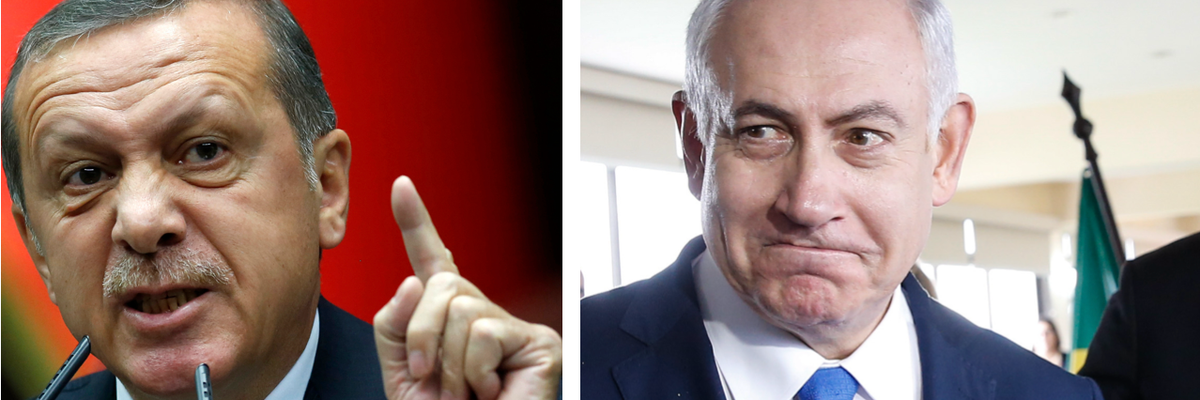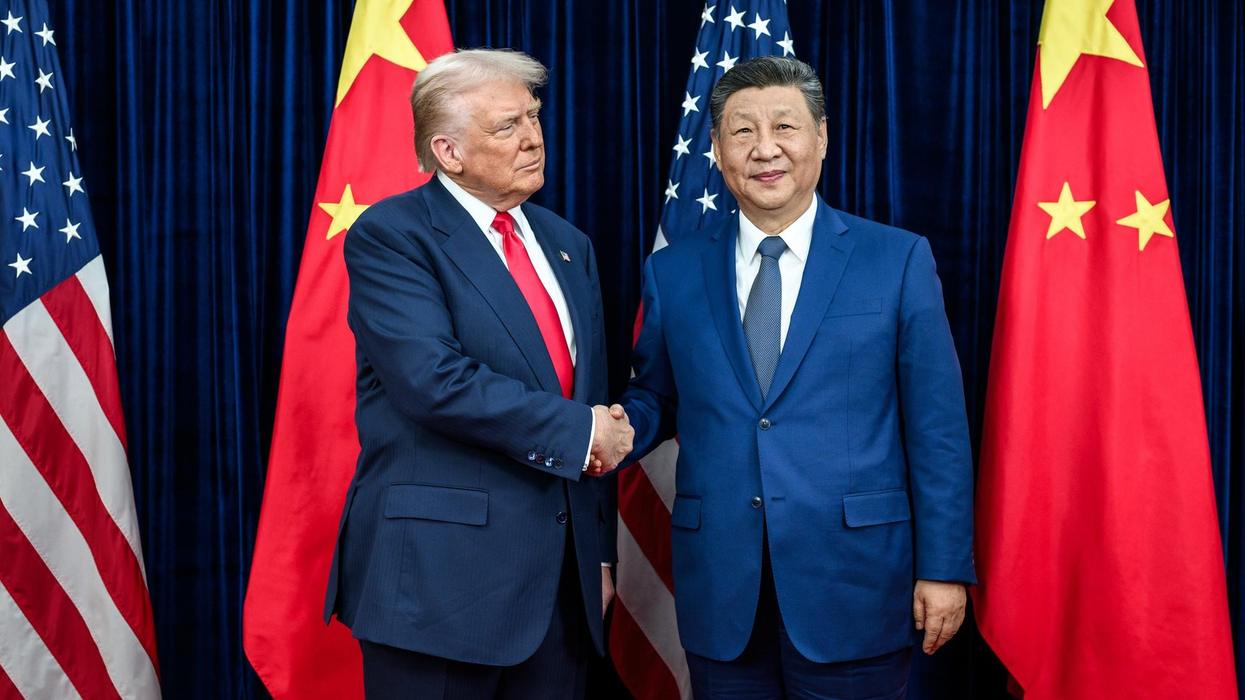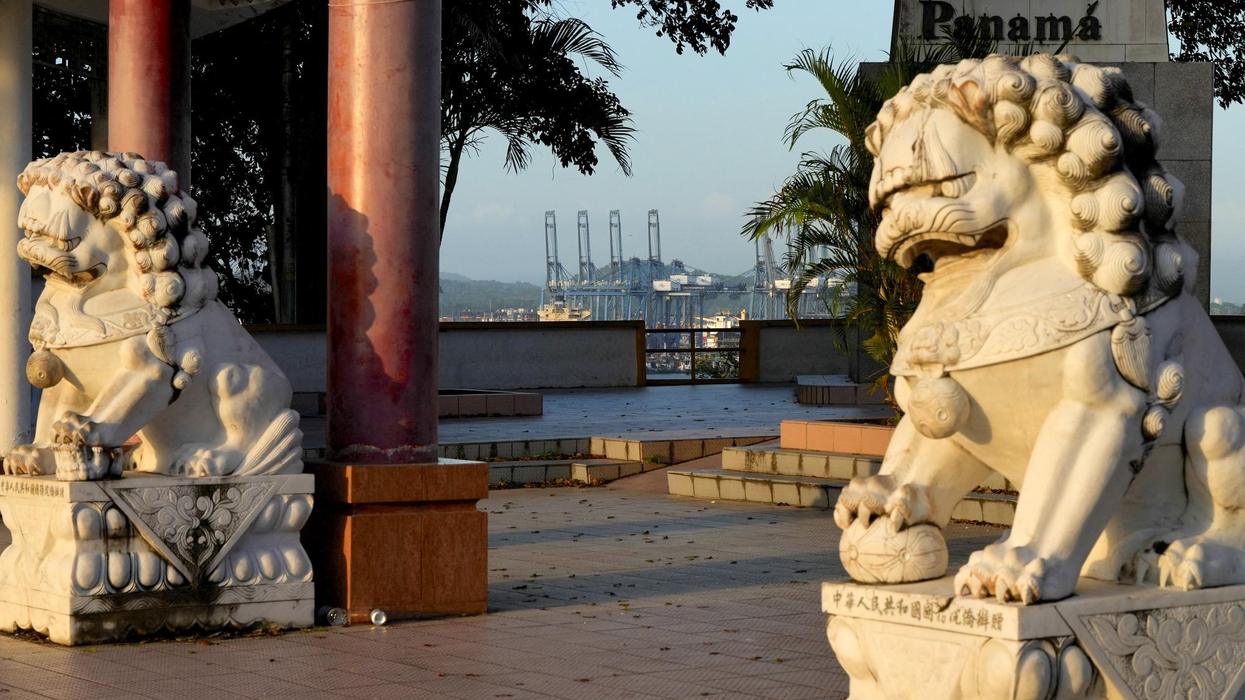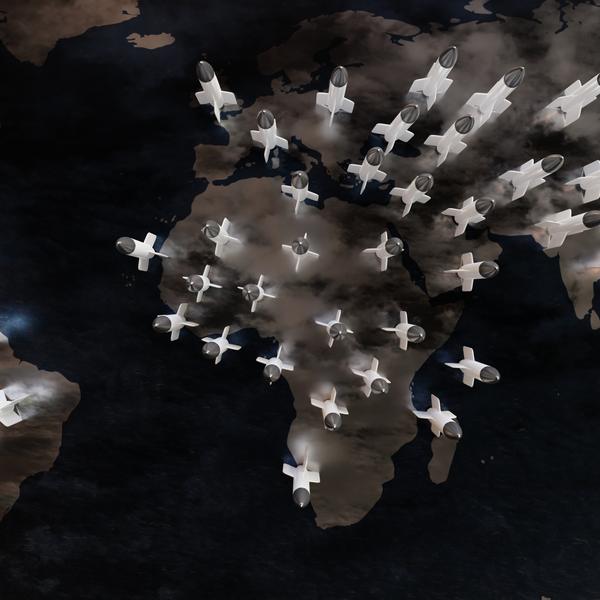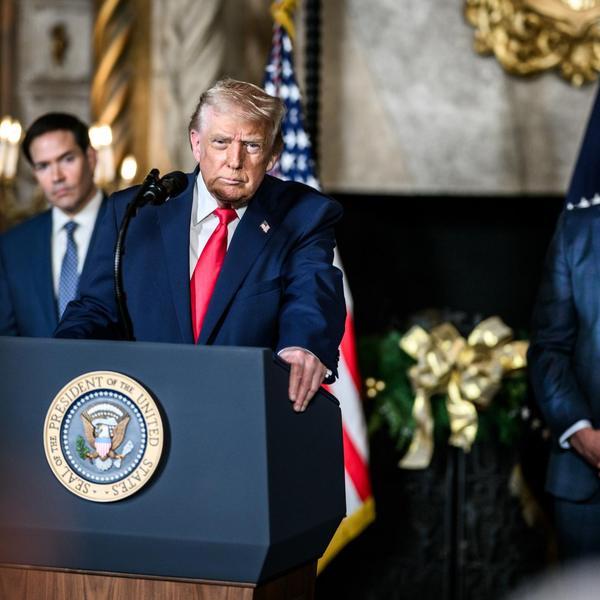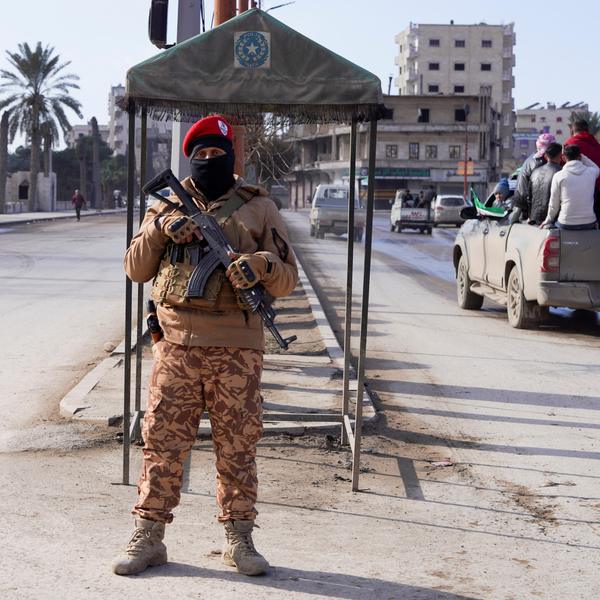Turkey recently suspended trade with Israel because of the “worsening humanitarian tragedy” in Gaza.
Ankara says it will resume trade if Israel permits an “uninterrupted and sufficient flow” of aid into the enclave. Predictably, Israel’s chief diplomat, Israel Katz, accused Turkish President Recep Tayyip Erdogan of behaving like a “dictator” while “disregarding the interests of the Turkish people and businessmen and ignoring international trade agreements.” Hamas unsurprisingly praised Turkey.
Tensions between Turkey and Israel have soared at various points in recent decades, such as the 2009 Davos Summit and the 2010 Gaza flotilla raid. Yet, until now, Turkish-Israeli economic relations always weathered those storms. Therefore, Turkey halting trade with Israel this month is a big deal.
“Since mid-October last year, when President Erdogan stepped up his sharp criticism of Israel’s attack on civilians in Gaza, trade has been the one element of the two countries’ relationship that has remained positive. Now that Turkey has cut off all trade with Israel, that positive element is gone,” Matthew Bryza, the former U.S. Deputy Assistant Secretary of State for Europe and Eurasia, told RS.
“Erdogan appears to be breaking with tradition in taking a holistic approach to ties with Israel. In previous crises, trade relations always remained distinct from strained political ties. Now, the government appears not to be concerned with escalation on all fronts,” said Batu Coşkun, a political analyst who specializes in Turkish affairs at the Sadeq Institute, in an interview with RS.
According to Murat Aslan, a faculty member at Hasan Kalyoncu University and a researcher at the SETA Foundation, Turkey has cards it can play if it seeks to increase pressure on Israel beyond suspending trade. These include encouraging other countries to join Turkey in imposing embargos on Israel and closing Turkish airspace to Israeli flights. “We have to wait and see [if Turkey takes] these steps, but I know that there are [many] options,” said Aslan.
Domestic pressures and mounting tension
Turkey’s domestic politics must be considered. At an earlier stage in the Gaza war, segments of Turkish society started pressuring Erdogan’s government to take concrete steps against Tel Aviv beyond strong rhetoric. A few weeks ago, Turkey curbed trade with Israel in 54 areas, including steel, fertilizer, and jet fuel.
In the lead up to last month’s municipal elections, there were calls for severing all trade with Israel, which resonated with many of Erdogan’s constituents. As a result, a fair share of Erdogan’s traditional supporters either refused to vote, or they supported the New Welfare Party, an Islamist party that campaigned on opposing the government’s policy of permitting continued trade with Israel amid the Gaza war.
Now, in deciding to halt Turkish trade with Israel, “Erdogan appears to be reacting to retain his popularity,” according to Coşkun. “This means that the president is likely to continue escalating rhetoric, which means more tension in ties with Israel.”
The economic impact
Israel has long maintained robust trade, investment, and commercial relations with Turkey. In 2023, bilateral trade stood at roughly $7 billion. Zorlu Holding, a Turkish conglomerate, is a major investor in Israel’s economy, and Turkish construction companies have made lots of money in Israel over the years. It can be taken for granted that construction costs will increase in Israel, and there will be inflationary effects due to Ankara’s decision to halt trade.
But, for the time being, it is less than clear how much harm the Turkish embargo will inflict on Israel’s economy, and how long the harm will last. Countries can adapt when their trade relations are interrupted or sanctions are imposed. Russia adjusting its trade routes and supply chains after the West waged financial warfare against Moscow in response to Russia’s full-scale invasion of Ukraine in 2022 is an example. Similarly, Israeli policymakers are now busy trying to assess what damage will likely be inflicted on their economy and how to adjust to offset the effects of Turkey’s embargo.
Additionally, Turkey’s economy will take a hit too. This was a major reason why Ankara did not implement the embargo sooner. There is widespread support across Turkey’s political spectrum for the Palestinians, but also a debate over how much of a price the nation should pay to support Gaza.
“It will definitely harm the Israeli economy in unprecedented ways given the internal situation in Israel and the Houthis’ measures at the entrance of the Red Sea,” said Ali Bakir, an assistant professor at Qatar University’s Ibn Khaldon Center and nonresident senior fellow at the Atlantic Council's Scowcroft Middle East Security Initiative, in an interview with RS.
“Having said this, it will also harm the Turkish economy, which is already struggling and is being adjusted to recover,” Bakir added, noting that regional governments that are afraid of taking such financial risks should step up to help those, like Turkey, that are willing to do so.
Azerbaijani oil
The impact of Turkey’s actions on Azerbaijan and, more specifically, its oil exports to Israel will matter. Azerbaijani oil goes through the Baku-Tbilisi-Ceyhan pipeline and then on to Israel via tanker. If Ankara would stop allowing Azerbaijan to export oil to Israel through the Ceyhan port, Israel’s economy could greatly suffer.
“It’s not clear at this point whether or not Turkey will cut off those flows of [Azerbaijani] oil…to Israel. Were that to be the case, that could have a more significant impact on Israel’s economy as the economy adjusts to having to find new supplies,” said Bryza, who also served as U.S. ambassador to Azerbaijan.
He noted that Israel has long-term energy contracts with Azerbaijan, and it would have to pay much more for oil if bought on the spot market.
“If Turkey halts this flow…then Israel has to find another source for energy. Otherwise, they will be in trouble,” added Aslan.
Nonetheless, given the nature of the Ankara-Baku alliance, Turkey may refrain from taking this action. “I would be surprised if Turkey were to cut off flows of Azerbaijani oil through and from the Turkish port of Ceyhan to Israel because that would also damage the interests of Azerbaijan,” said Bryza. “Turkey and Azerbaijan have the closest of bilateral relationships with the cliche describing that relationship, they are ‘one nation and two states.’”
Will others follow Turkey in halting trade with Israel?
Turkey’s suspension of bilateral trade will inevitably harm the Israeli economy, at least in the near-term. This will be an additional cost that Prime Minister Benjamin Netanyahu’s government, and Israel as a country will have to pay for its crimes against the civilians of Gaza.
However, if Turkey is alone in imposing an embargo on Israel, the economic harm inflicted on Israel could be limited. What needs to be considered is the possibility of other countries following Ankara’s lead, which could make Israel’s economic challenges more serious.
Turkey’s decision will certainly be welcome by Arab citizens across the Middle East and North Africa. They will likely point to Ankara’s embargo on Israel as an example of how Muslim countries should deal with Israel and call on their governments to follow suit. Whether those governments will do so, however, is another question.
- Will Turkey’s new ambassador mark a change in relations with Israel? ›
- NATO member Turkey takes role of 'active neutrality' in Red Sea crisis ›
- Will Turkey eventually support Hezbollah? | Responsible Statecraft ›
- Turkey's BRICS gambit is just what Russia ordered | Responsible Statecraft ›
- Is Turkey's big break with Israel for real? | Responsible Statecraft ›

